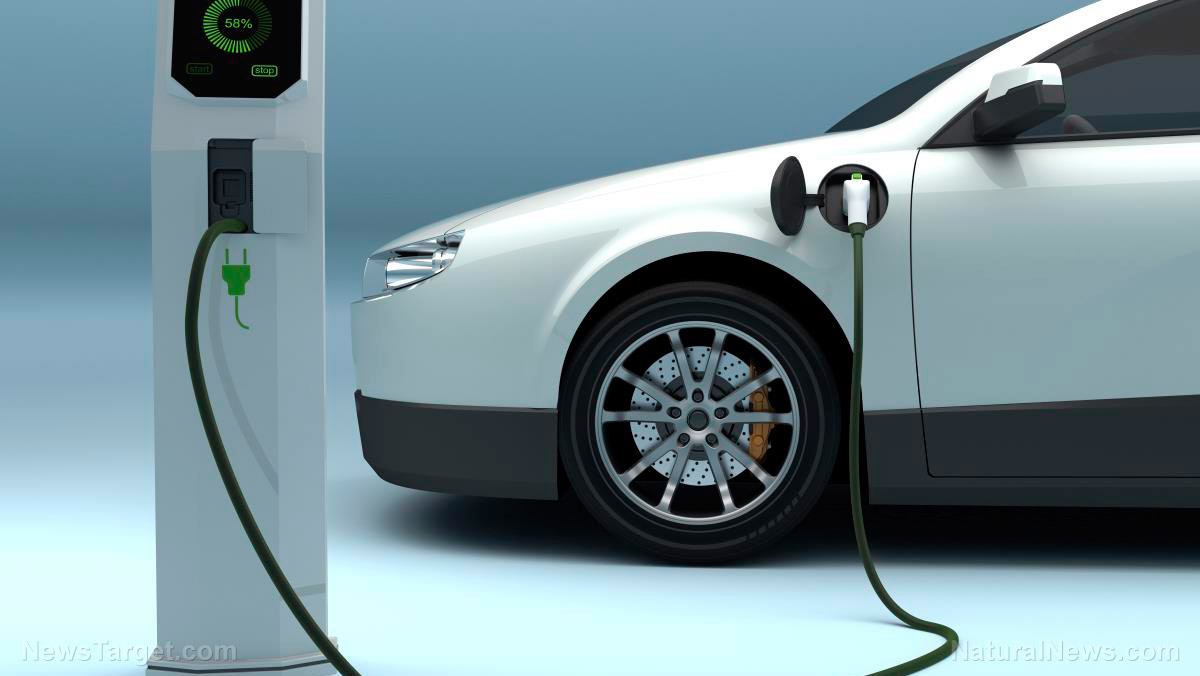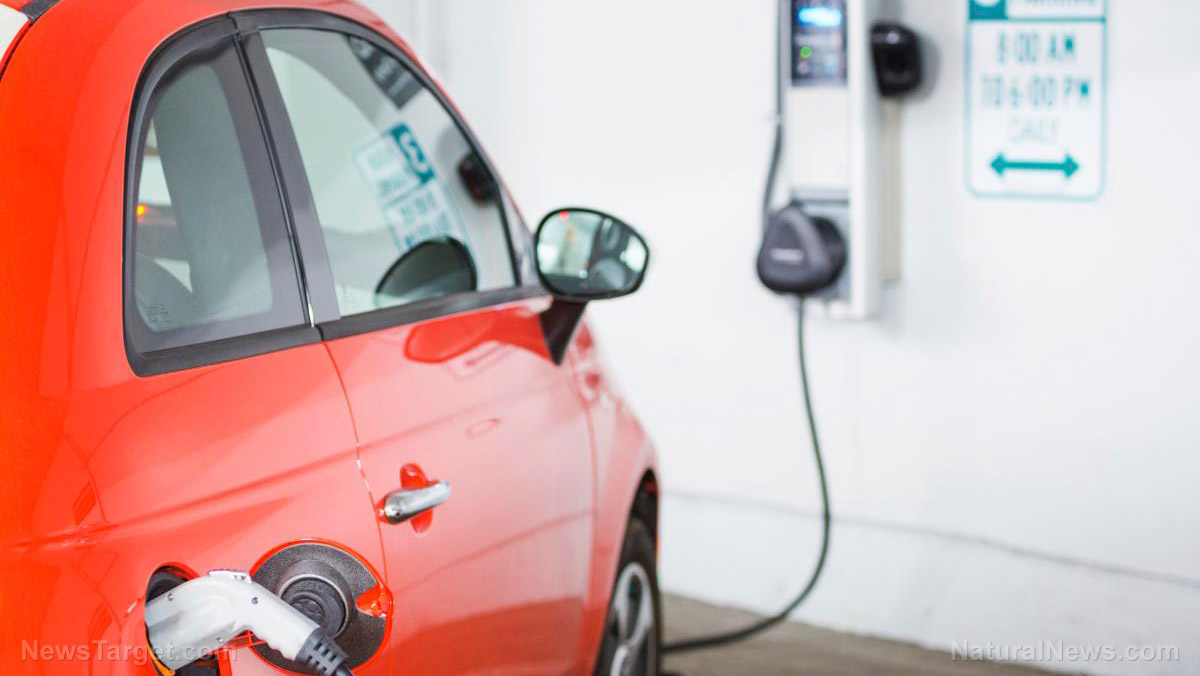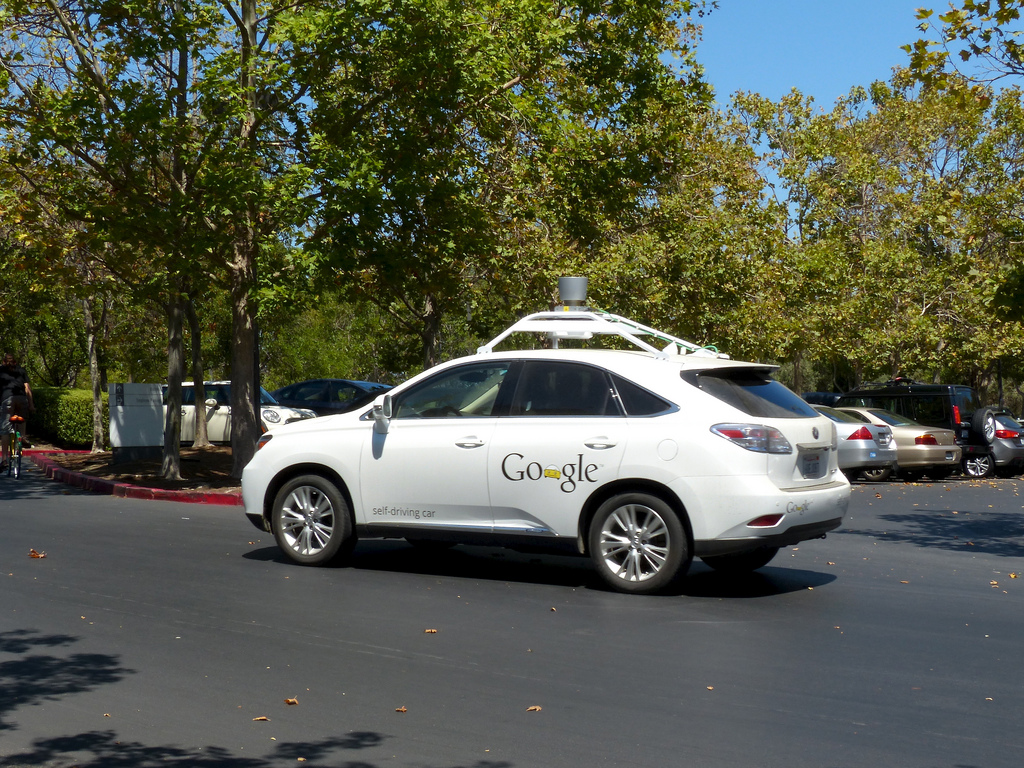Nobody is buying electric cars, but automakers continue to manufacture them in accordance with “green” agenda
07/14/2023 / By Ethan Huff

The automobile industry in the United States is rapidly declining thanks to the government’s “green” energy and electric vehicle (EV) push.
In 2023 alone, Ford is slated to lose $3 billion on electric cars, which very few people want to buy. EVs are piling up on both new and used car lots because most Americans prefer gas-powered vehicles for their reliability, distance capacity, and cost.
Nationwide, the total supply of EVs in stock of all brands has swelled to more than 92,000 units. This is about 350 percent higher than last year’s stock, representing a 92-day supply, or roughly three months’ worth of EVs and twice the industry average.
“For comparison, dealers have a relatively low 54 days’ worth of gasoline-powered vehicles in inventory as they rebound from pandemic-related supply chain interruptions,” reports explain. “In normal times, there’s usually a 70-day supply.”
(Related: Fake president Joe Biden is pushing massive EV tyranny on Americans that House Republicans are trying to stop.)
Leftists blaming car dealers for EV failure
The plan is to start phasing out real cars, meaning the gas-powered kind, by the year 2030. If nobody wants to buy them, though, then how is this actually going to be accomplished?
By the year 2025, Ford says it plans to sell two million EVs. Last year, Ford sold just 61,575 EVs. That leaves a gap of 1,938,425 EVs per year that Ford will have to find buyers for, which seems unlikely.
Ford is not on track to sell even two million normal cars in 2023, which makes its two million EVs sold in 2025 goal a virtual impossibility.
Then there is the Ford investment in Rivian, which costs the company $220,000 per vehicle to make with each car selling for just $81,000. This means that for every car Ford sells with Rivian, it loses $139,000 – sound business model, eh?
Most automakers do not report their EV sales separately like Ford does, but chances are that most, if not all, of them are losing money hand over fist just the same.
Take GM, for instance. The company says it plans to sell one million EVs per year by 2025, even though it sold just 40,000 EVs in 2022.
Rather than acknowledge the fact that almost nobody wants to buy an EV because they are trash compared to gas-powered vehicles, the left is instead blaming car dealers for the failure of EVs to take off in popularity.
A recent survey found that 53 percent of consumers feel as though EVs are the future while only 31 percent of dealers agree. This, the left claims, serves as evidence that dealers are the problem.
“Nearly half (45%) of dealers surveyed feel that EVs still need to prove themselves in the marketplace,” one report explains about the survey’s results.
There are apparently mounds of EVs piling up in communist China that nobody wants to buy, either. Entire EV graveyards are forming, which is soon to be the case here in the U.S. if trends continue.
“Remember: nine out of 10 battery-powered cars are still on the road – the rest made it to their destinations,” one commenter joked, poking fun at the unreliability of EVs.
Another joked that Ford is bottom-of-the-barrel for vehicle quality as it is, let alone whatever the nationalized car manufacturer came up with for its EV lines.
“My TV remote control probably drives better and is damned sure more reliable,” this person said. “I’ll be a Toyota man until the day I die. A lot of them are made in America, unlike Ford, which has its largest factory in Mexico.”
“Market economies work; command economies don’t,” said another.
The latest news about the EV scam can be found at GreenTyranny.news.
Sources for this article include:
Submit a correction >>
Tagged Under:
Agenda 2030, Agenda 21, automakers, bubble, cars, collapse, debt bomb, debt collapse, economic riot, electric cars, electric vehicle, environment, ESG, EV, finance riot, Green New Deal, green tyranny, insanity, market crash, money supply, products, risk
This article may contain statements that reflect the opinion of the author
RECENT NEWS & ARTICLES
FlyingCars.News is a fact-based public education website published by Flying Cars News Features, LLC.
All content copyright © 2018 by Flying Cars News Features, LLC.
Contact Us with Tips or Corrections
All trademarks, registered trademarks and servicemarks mentioned on this site are the property of their respective owners.
















